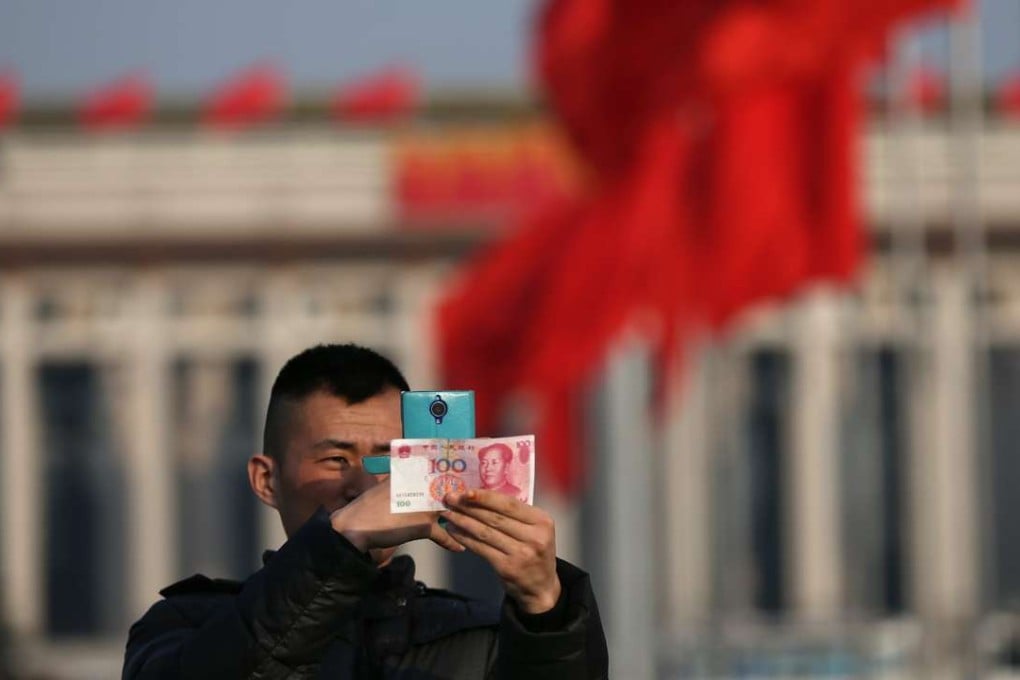Why a Tobin tax could help to stabilise the renminbi
Lawrence J. Lau argues that levying a tax on currency trades would enable China to fight off speculators and channel capital to trade and investment, while boosting the yuan’s credibility

The recent renminbi devaluation has been wrongly blamed on rumours of a possible introduction of a Tobin tax by Beijing. What is a Tobin tax? First proposed by economist James Tobin, it is a tax on currency conversion that would be levied on all inbound and outbound cross-border capital account flows. Current account flows are exempt. It was designed to discourage short-term currency speculation in the aftermath of the Asian currency crisis of 1997-1998.
Yuan falls four straight days as Tobin Tax not ruled out
A Tobin tax can serve as a device for discriminating between long-term and short-term capital flows. Suppose a Tobin tax of 1 per cent is imposed on all capital account flows. A one-month round-trip from US dollars to renminbi and back would imply a cost of 24 per cent per annum, which should be sufficiently prohibitive to discourage most speculators. For a direct investor with a five-year time horizon, however, the cost is only 0.4 per cent per annum (1 per cent in and 1 per cent out over five years), which is affordable. Today, the overwhelming bulk of foreign exchange transactions in the world, which total about US$1,250 trillion a year, compared to the total value of world trade of less than US$50 trillion (less than 4 per cent), is for speculative purposes.
Free and unregulated short-term capital flows, both outbound and inbound, can be greatly destabilising to the foreign exchange market, the exchange rate and the capital market of an economy. They unnecessarily increase the volatility of the exchange rate and discourage international trade and long-term direct and portfolio investments. In fact, while economic theory tells us that voluntary trade between two countries always benefits both, and long-term direct investment benefits both the investor and the investee countries, it does not claim that short-term capital flows are beneficial to either the origin or the destination country.

The sad irony of government intervention to curb speculation
Moreover, short-term capital inflows cannot be productively utilised in the destination country because of a double mismatch: currency mismatch and maturity mismatch. Borrowing in a foreign currency when the potential revenue is in the domestic currency and borrowing short-term funds to finance long-term projects are formulas for economic disasters down the road.
A Tobin tax can reduce short-term capital flows in both directions. It can also make possible the dilemma of “the impossible trinity”. The concept of Robert Mundell states that it is impossible for an economy to satisfy all three of the following conditions at the same time: a fixed (stable) exchange rate; free capital movement; and, an independent monetary (that is, interest rate) policy.

However, a Tobin tax makes it possible to maintain an interest rate differential between domestic and international capital, even in the presence of free capital movement (but subject to the Tobin tax) and a fixed exchange rate. How? Suppose the renminbi is pegged to the US dollar and there is free capital movement, only subject to the payment of a Tobin tax of 1 per cent upon entry to and exit from the mainland. Suppose the US interest rate is zero, and the Chinese interest rate for one-year fixed deposits is 2 per cent. In principle, US investors can invest in one-year renminbi fixed deposits, earn 2 per cent, and then convert back to dollars at the fixed exchange rate at the end of one year. If this were true, China would be flooded with US dollar inflows, and the renminbi interest rate would fall to the same level as the US. However, with the 1 per cent Tobin tax, US investors would earn nothing net, and hence would not invest in the renminbi fixed deposits. Thus, there can be a differential of up to 2 per cent between the one-year renminbi and US dollar interest rates, sufficient for China to have its own interest rate policy.
